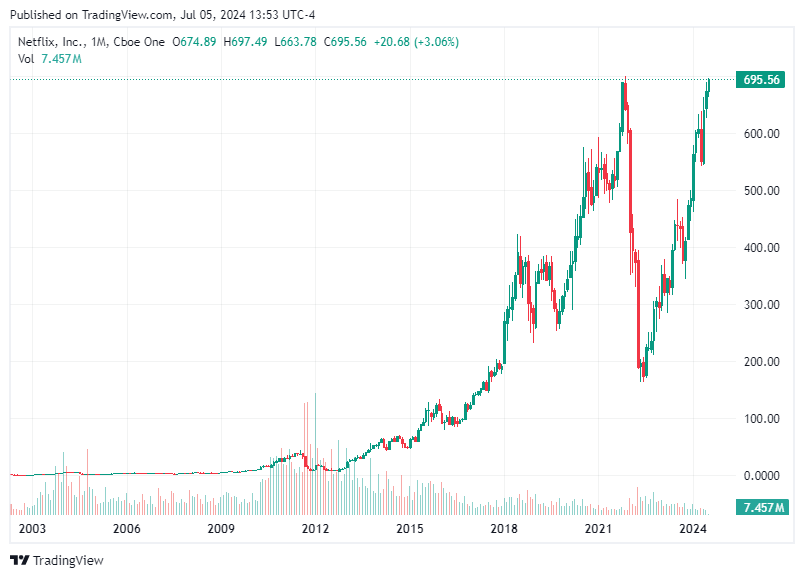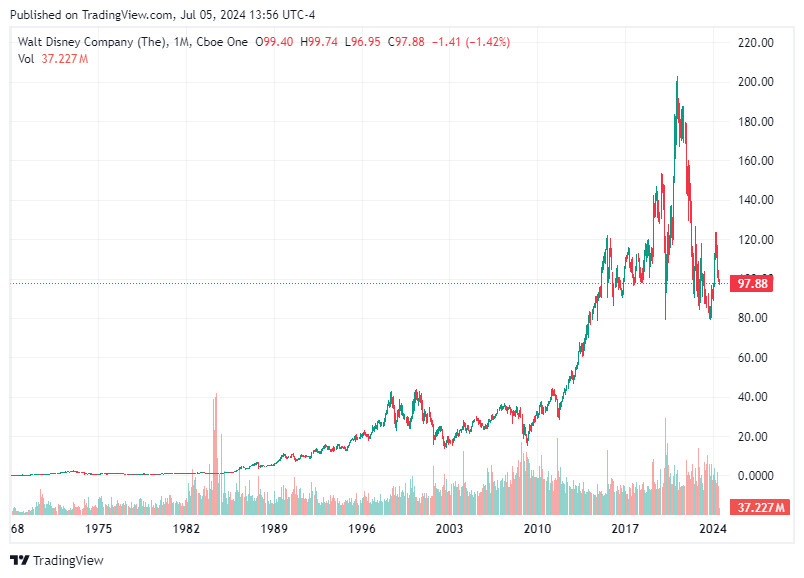Disney and Netflix Petition Canadian Court To Halt Tax Proposal
Netflix and Disney Appeal Proposed Canadian Tax on Streaming Revenue

Disclaimer: This article is for informational purposes only and should not be construed as legal or financial advice. The opinions expressed are those of the companies and organizations mentioned and do not necessarily reflect the views of the author or the platform hosting this content.
Real-time information is available daily at https://stockregion.net
Netflix, Walt Disney, and other U.S. streaming giants have recently petitioned a Canadian court to halt a proposed tax that would require them to allocate 5% of their sales in Canada to fund local broadcast news and domestic content. The Motion Picture Association-Canada (MPA-C), representing Disney (DIS), Netflix (NFLX), and other streamers, has taken a firm stance against this proposed tax on revenue generated in the country. Read further as Stock Region gets into the details of the proposed tax, the arguments presented by both sides, and the potential implications for the streaming industry and Canadian broadcasting.
The tax proposal comes from the Canadian Radio-television and Telecommunications Commission (CRTC), which aims to support the local broadcasting ecosystem. According to government estimates, this measure could raise approximately 200 million Canadian dollars ($147 million) per year. These funds are intended to be directed towards areas of immediate need within the Canadian broadcasting system, including local news and French-language content. The CRTC's rationale for this tax is rooted in the need to sustain and enhance local broadcasting, which has faced challenges due to the rise of global streaming platforms. As these platforms gain more viewers, traditional broadcasters find it increasingly difficult to compete, particularly in producing costly local news and culturally specific content.
On Thursday, the MPA-C filed an appeal with Canada’s Federal Court of Appeals to halt the proposal, intending to prevent the tax from going into effect in the fall. The lawsuit also represents other major players in the streaming industry, including Warner Bros. Discovery (WBD) and Paramount Global (PARA).
Wendy Noss, President of the MPA-C, articulated the primary arguments against the proposed tax in a formal statement. According to Noss, "The CRTC’s decision to require global entertainment streaming services to pay for local news is a discriminatory measure that goes far beyond what Parliament intended, exceeds the CRTC’s authority, and contradicts the goal of creating a modern, flexible framework that recognizes the nature of the services global streamers provide."
Noss further emphasized that the streaming services represented by the MPA-C do not produce local news nor are they granted the legal privileges and protections enjoyed by Canadian broadcasters. Therefore, she argues, it is unfair to impose a tax on these services to fund local news—an obligation that traditionally falls under the jurisdiction of local broadcasters who benefit from certain regulatory advantages.
Perspectives Supporting the Tax
Contrarily, supporters of the tax argue that global streaming services have a responsibility to contribute to the media ecosystems in the countries where they generate significant revenue. Given their market share and influence, proponents believe that these companies should help sustain local media, which plays a crucial role in democracy and cultural preservation. The CRTC has stated that the funding will be "directed to areas of immediate need in the Canadian broadcasting system," which includes local news and French-language content. This support is deemed crucial for maintaining a diverse and vibrant media landscape in Canada, especially considering the financial hardships faced by traditional media outlets.
The outcome of this legal challenge could have far-reaching implications for the streaming industry and regulatory practices worldwide. If the court sides with the MPA-C, it could set a precedent that limits the ability of national regulators to impose similar taxes or obligations on global streaming services. This would likely be welcomed by streaming companies seeking to minimize regulatory burdens and maintain flexibility in their operations across different jurisdictions. Conversely, if the court upholds the tax, it may embolden other countries to implement similar measures, potentially leading to a patchwork of regulations that streaming companies must navigate. While such regulations could promote local content and support struggling media industries, they could also increase operational complexities and costs for global streaming services.
Canadian Broadcasting
Should the tax be implemented, the infusion of funds into local broadcasting could provide a much-needed boost to Canadian news organizations and content producers. This could lead to enhanced quality and quantity of local news coverage and more robust French-language programming, contributing to the cultural and linguistic diversity of Canadian media. There are concerns about how effectively these funds will be allocated and whether they will genuinely address the needs of the local broadcasting system. Critics might argue that without stringent oversight and clear guidelines, the additional funding may not translate into meaningful improvements for local media.
The legal battle between Netflix, Disney, and other U.S. streaming services versus the Canadian CRTC over the proposed tax on streaming revenue is a complex and multifaceted issue. It highlights the tension between global digital platforms and national regulatory bodies, each with distinct priorities and challenges. As the case proceeds through the courts, its outcome will be closely watched by stakeholders across the media and entertainment industry, potentially shaping the future of media regulation and the role of global streaming services in national markets.

Disclaimer: This article is for informational purposes only and should not be construed as legal or financial advice. The opinions expressed are those of the companies and organizations mentioned and do not necessarily reflect the views of the author or the platform hosting this content.
Real-time information is available daily at https://stockregion.net




